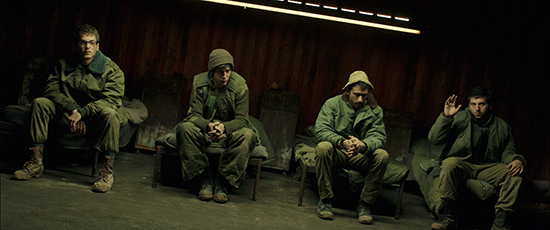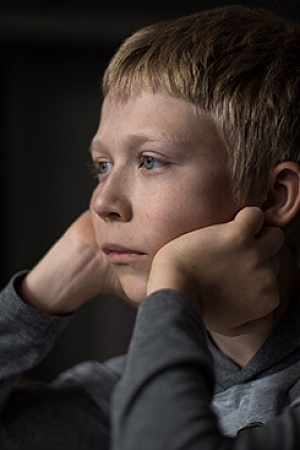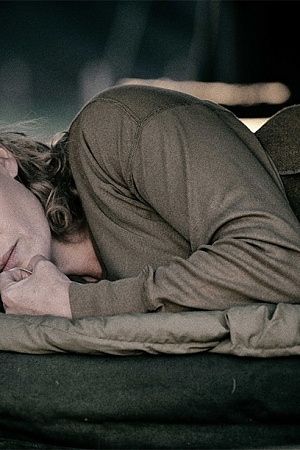Foxtrot ★★★★★
A doorbell rings. Along with the Feldman family, we are catapulted into Samuel Maoz’s mesmerising drama, one worthy of its Greek tragedian and European absurdist antecedents. Deeply shocked, a woman faints and fits; a man is frozen. Their son Yonatan, a soldier, has been killed. Hell descends on the stylish apartment at 8 am. We know this because one of the three solicitous soldiers, emissaries of tragedy, have set the father’s phone to beep every hour so that he is reminded to drink water. He must drink. There are protocols for loss. After all, it happens regularly.
In David Grossman’s novel To the End of the Land (2008), another Israeli tragic masterpiece, the hero Ora is beset by anxiety: that she will be informed of her soldier son’s death. She flees her apartment to evade this inevitability, or perhaps to magic it away. If she is not there to receive the news, it may not become a reality. To the End of the Land was rendered doubly mythic by its prescience; while writing it, Grossman was informed of his son’s death in the 2006 Lebanon war. Foxtrot begins by encountering this horror up close, in a domestic space. It is an Israeli societal fear that runs deep, particularly among families whose children serve in army combat units.
Foxtrot, apart from its framing device, resembles a three-act play, particularly in its first and concluding scenes. For much of the first act we witness the father Michael’s rapid dissolution, while his wife, Dafna, lies on their bed, heavily sedated. Michael, played by Lior Ashkenazi (Footnote, Late Marriage), attempts to sublimate his grief by enacting small violences upon himself and his doting dog, but finds he cannot. Maoz and cinematographer Giora Bejach make accomplished use of the close-up and the extreme close-up throughout the movie, as they did in Lebanon (2009). It is no coincidence that Ashkenazi, one of Israel’s most recognisable film stars for both talent and dashing looks, has been cast in this role. His depiction of a successful man whose life has been upended – further signified by disorienting camera angles and the sensation of falling into the vortex of a geometrical painting – is profoundly affecting. A young ineffectual soldier from the rabbinate briefs Michael on the protocols of the funeral, informing him that ‘the mother’ will be most affected; ‘after all, we’re men’. Maoz’s exploration here is of the archetypal Israeli male of which Ashkenazi is an icon.
 A still from Foxtrot (Sharmill Films)
A still from Foxtrot (Sharmill Films)
Continue reading for only $10 per month. Subscribe and gain full access to Australian Book Review. Already a subscriber? Sign in. If you need assistance, feel free to contact us.















Leave a comment
If you are an ABR subscriber, you will need to sign in to post a comment.
If you have forgotten your sign in details, or if you receive an error message when trying to submit your comment, please email your comment (and the name of the article to which it relates) to ABR Comments. We will review your comment and, subject to approval, we will post it under your name.
Please note that all comments must be approved by ABR and comply with our Terms & Conditions.